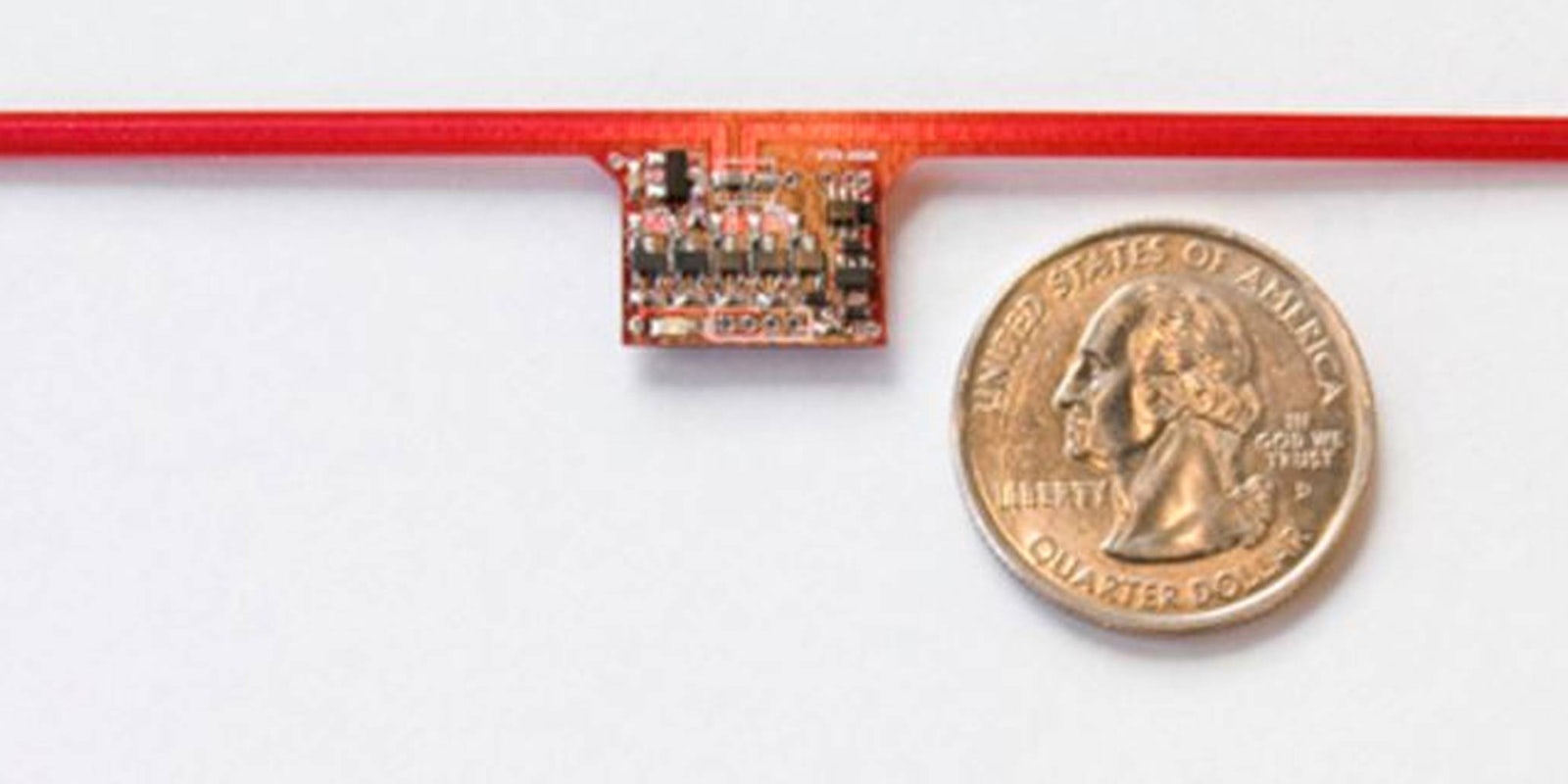Researchers at the University of Washington’s Sensor Systems Laboratory created the world’s most powerful battery-free computer, which can now be reprogrammed wirelessly.
Instead of carrying a clunky battery internally, the WISP (Wireless Identification and Sensing Platform) harvests radio waves from a standard RFID tag to power itself.
“It’s not going to run a video game, but it can track sensor data, do some minimal processing tasks, and communicate with the outside world,” said Aaron Parks, a researcher at the University of Washington Sensor Lab, according to Fast Company.
The mini propeller-shaped device is made up of a group of sensors similar to what you might find in a Fitbit. These accelerometeres and temperature sensors are paired with a wirelessly programmable 16-bit microcontroller, or small computer which tracks and communicates its findings to the outside world.
The team at the University of Washington teamed up with researchers at Delft University of Technology to create Wisent, which allows for WISP to be reprogrammed wirelessly. So if a program using WISP needs to track a new function it can be done without having to plug anything in.
WISP has nearly limitless possibilities when it comes to turning devices “smart.” One area that could benefit from these tiny computers is infrastructure. WISP could be embedded in buildings and use its sensors to monitor their structural stability in the event of an earthquake. This low-powered wireless device could also be used to monitor fields of crops, or even send out an emergency signal from a dead smartphone.
There are a few walls keeping us from breaking open the Internet of Things and turning things smart. Batteries and wires are a few of the biggest obstacles. WISP, which sidesteps both of those problems, is the exact sort of device needed in order to “connect” our surroundings.
H/T PSFK | Photo via Sensor Systems Laboratory


